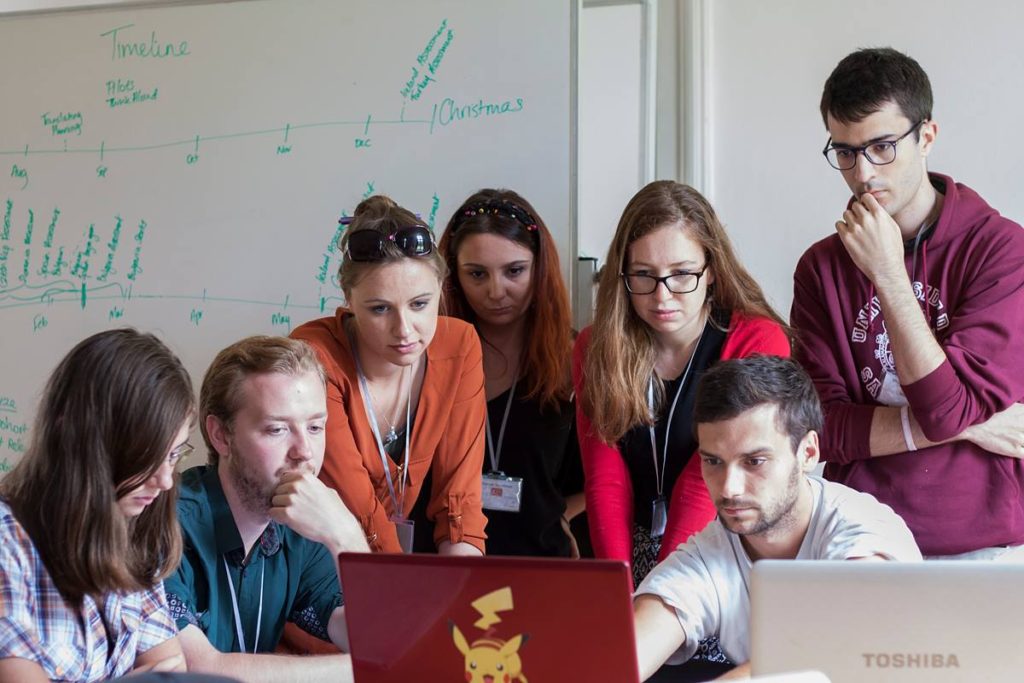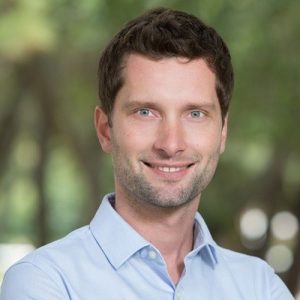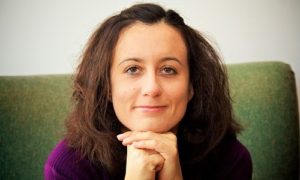The 2016 jSchool
 The 2016 jSchool was hosted in Slovenia from the 10th to the 17th July 2016. The region where the jSchool was held lies in the Panonian Plain and is a bilingual area, as it borders closely to Hungary. From here also originates the famous cake Prekmurska gibanica or in literal translation: over Mura moving cake.
The 2016 jSchool was hosted in Slovenia from the 10th to the 17th July 2016. The region where the jSchool was held lies in the Panonian Plain and is a bilingual area, as it borders closely to Hungary. From here also originates the famous cake Prekmurska gibanica or in literal translation: over Mura moving cake.
In the heart of Europe, where the Alps meet the Adriatic, and the Panonian Plain meets the Karst, lies Slovenia. Albeit one of the smallest countries in Europe, its strategic position on the crossways of political, geographical, cultural and historical forces creates an exceptional diversity, in landscape as well as in people and their culture. In one day alone, you can go skiing in the Alps, explore the vast underground cave system, kayak on a wild river and finish with a nice swim in the Adriatic Sea.
Slovenians nurture a very close relationship with arts and culture, which is one part of being a young country. Traditional Slovenian festivals include mask festivals where people dress in ethnic costumes of creatures in order to repel winter, ceremonial bonfires, and in summer, streets of the cities are overcome with street dancers, musicians, poets, actors and other artists. The capitol, Ljubljana, is currently carrying the title of the Green Capital of Europe, a name that is self-explanatory to anyone who takes a stroll through the city centre and its surroundings.
Theme
The 2016 jSchool theme was Mental Wealth: Exploring the Impact of Psychology. This theme was selected in order to create innovative responses to some of the most relevant challenges that psychology faces. Each research team interconnected different areas of cutting-edge psychological research with applied, influential disciplines, such as behavioural economics and public policy.
Projects
The following projects were started in the 2016 jSchool, and presented at the 2017 JRPC. Further information can be found here.
- Could user-generated content be effective in reducing excessive consumption?
- ‘Talkin’ about my generation’: exploring changes in adolescents’ well-being across several European countries.
- The relationship between music and emotional well-being in elderly people across Europe.
- Formal and informal learning and first-year psychology students’ developement of scientific thinking: A two-wave panel study.
- Over the edge – Revealing the devil inside us all.
- Would communicating the neuroscience of psychopathy influence moral behaviour?
Guest Speakers

Dr Michal Kosinski is an Assistant Professor at the Graduate School of Business at Stanford University. Some of his many honours include acknowledgment as one of the 2015 Association for Psychological Science’s Rising Stars and one of the most influential researchers in data-driving marketing. Dr Kosinski has already built a remarkable academic and professional career, currently holding the role as Assistant Professor in Organizational Behavior at Stanford Graduate School of Business. His prior positions have included postdoctoral research in the renowned Computer Science Department and Stanford as well as completing his doctoral research while serving as the Deputy Director of The Psychometrics Centre at the University of Cambridge. It was in Cambridge where he coordinated perhaps his most widely-known work on the myPersonality project, which is a global collaboration between over 150 researchers.
Dr. Kosinski’s research interests exemplify how research could be translated to tangible outcomes, helping to explain how psychological traits (such as personality) relate to a broad range of organizational and social outcomes, including job performance, person-job fit, consumer preferences, and ideology, thus making an important contribution in expanding impacts of psychological research in society. His production also embraces applied and theoretical studies in fields such as machine learning, data mining, and observational studies involving millions of participants and a wide international collaboration of researchers.

Dr Vita Poštuvan is a lecturer at two universities in Slovenia, investigating the prevention of suicidal behaviour and promotion of mental health. Her work looks at the implementation of large-scale public health projects along with clinical and therapeutic partners.
On top of her primary post at the Department of Psychology at University of Primorska, Dr Poštuvan’s is the Deputy Head of the Slovene Center For Suicide Research and a lecturer at the University of Maribor. A leader in areas such as suicidology, bereavement, crisis interventions and psychotherapy, she advocates for mindfulness-based cognitive therapy. She is also in the process of becoming a licenced cognitive behavioural therapist. Her work on suicidology has had tremendous international exposure.
Vita is a member of a national psychological support unit dealing with crisis interventions within the Civil Protection of Republic of Slovenia, which is responsible for disaster relief programmes. Vita also collected rich experiences in this field while working in India and China, implementing health-related interventions for people in deprived areas (Association of People with Disability, Bangalore) and working with migrants (Hua Dan, Beijing). She initiated psychosocial interventions with cooperation of the Slovene psychologists’ association and Slovene philanthropy dealing with the refugees crisis in 2015, which helped to provide emergency psychological help to thousands of refugees in Slovenia.
Between 2011 and 2015 she was a Secretary General of the Slovene psychologists’ association and a representative in Operational Support Network (OSN, EFPA). Dr Poštuvan was recognised scientific excellence in the University of Primorska and was awarded with the prestigious title of Prometheus of Science for excellence in communication. She has also been honoured by the Slovene Psychologists’ Association for her overall contribution to the Slovenian scientific community.
Venue
The 2016 jSchool activities were held in a 19th century mansion Dvorec Rakican that was built for a Countess Batthanyi and is located in the north-eastern region of Slovenia called Prekmurje. Students and research supervisors enjoyed working in the modern facilities and spent time exploring the impressive natural and cultural surroundings. The forests and lakes surrounding the mansion provide an excellent place for tranquil relaxation and soaking in everything Slovenia has to offer.
